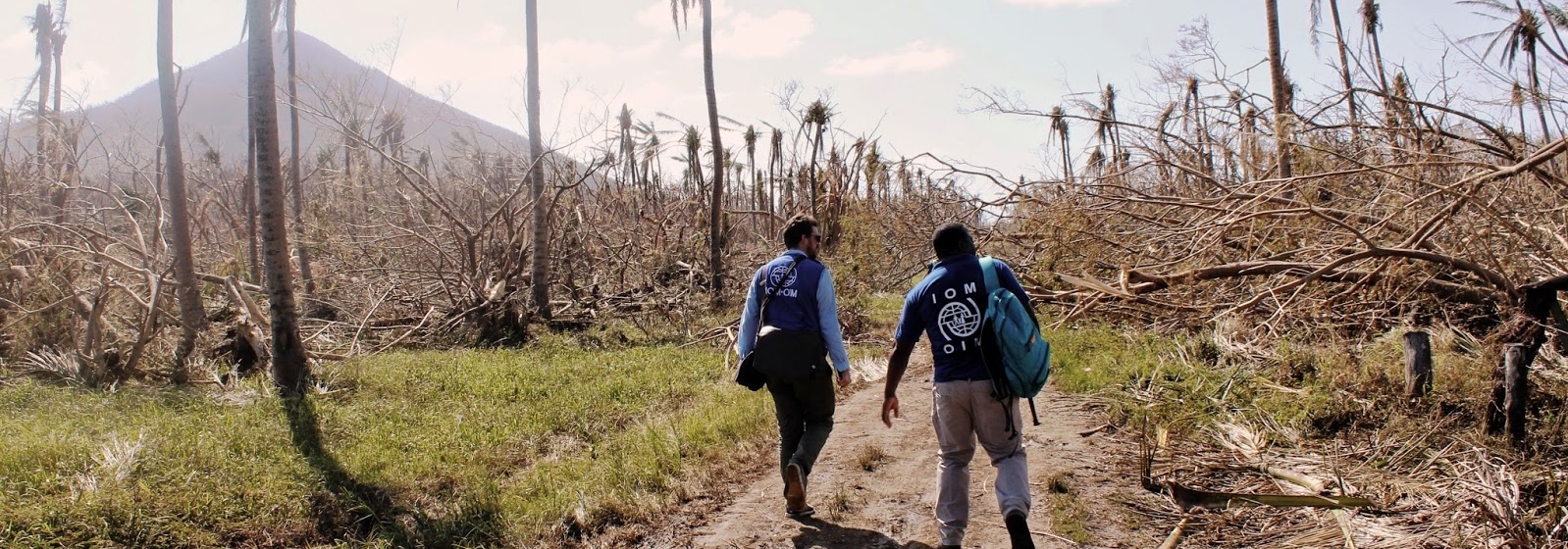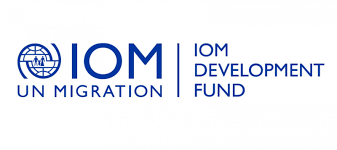IOM Vision
The South Pacific Islands Crisis Response Plan 2020 - 2022 indicates the total funding requirements for IOM’s programming across the humanitarian, development and peace spectrum for the Republic of Fiji, the Solomon Islands, the Kingdom of Tonga, and Vanuatu. In partnership with the governments of Fiji, Solomon Islands, Tonga, and Vanuatu, IOM will comprehensively address vulnerabilities and drivers of displacement before, during and after crises by:
- Supporting national and local authorities to effectively prevent, respond to and manage displacement situations;
- Enhancing resilience in at-risk communities to prepare for climate change and disaster-related human mobility;
- Providing comprehensive, targeted and life-saving humanitarian assistance to affected populations in times of disaster and ensure the continuation of essential services;
- Supporting progress towards the achievement of durable solutions for communities displaced by disasters and the long-term impacts of climate change
This approach recognizes that meeting immediate needs during crises and addressing the systemic causes of vulnerability contributes to reducing the impact of recurrent stresses and is essential for sustainable development. The strategic goals outlined in the plan will be achieved by implementing programmes in-line with IOM’s global principles and objectives.
Objective
Saving lives and protecting people on the move
Given the frequency of disasters caused by natural hazards in the Pacific region, IOM anticipates providing NFI and Shelter support to an estimated 5,000 internally displaced persons and disaster-affected communities and supporting three National Disaster Management Offices (NDMOs) and eight humanitarian organizations.
In addition, this Objective will also target:
- 40 government decision-makers and first responders who will have improved capacity to gather and analyze data to disseminate critical multi-layered information on the mobility, vulnerabilities, and needs of displaced populations following training; and
- 20,000 high-displacement risk community members benefitting from improved equitable access to protection and assistance following the implementation of assessments.
In partnership with national NGOs, and in collaboration with the National Disaster Management Officers (NDMOs) and regional /national shelter cluster, IOM will address the shelter needs of internally displaced persons and disaster-affected communities, including:
- Conducting comprehensive needs assessments, with special consideration to persons with special needs and other vulnerable groups and
- Distributing NFIs and emergency shelter materials procured locally
IOM plans to carry out the following activities:
- Technical support teams will be provided to the respective National Disaster Management Offices (NDMOs) in the Republic of Fiji, Solomon Islands and Vanuatu to support the planning and implementation of Displacement Tracking Matrix assessments (Mobility and Emergency)
- Population mobility mapping (PMM)
- Information management system products will be identified that can be integrated with the NDMO reports through a displacement tracking capacity assessment/workshop;
- Training of trainers for NDMO national and provincial government staff and humanitarian partners is planned to strengthen the collation, analysis and dissemination of displacement data

Objective
Strengthen preparedness and reduce disaster risk
People targeted under this objective are government decision-makers and first responders (80), evacuation center managers (300) , and high-displacement risk communities benefitting from improved equitable access to protection and assistance (20,000).
Through the establishment and operation of the regional CCCM-like Evacuation Centre and Displacement Management Cluster, IOM will promote the provision of equitable protection and assistance to the displaced persons residing in communal settings by:
- developing and providing technical advice, training resources, coordination and IM tools, support and guidance to government-led CCCM-like clusters in the Kingdom of Tonga, Solomon Islands and Vanuatu.
- develop regional and national evacuation management guidelines
- provide evacuation centre and displacement management and coordination training to national and local authorities, humanitarian partners, civil society organisations and community committees.
- Develop criteria for the pre-identification of evacuation centres in high-displacement risk communities.
- Evacuation centres and routes, and critical services (e.g. health clinics) will be mapped, assessed and strengthened in communities identified as at a high risk of displacement.
.
Fiji, Solomon Islands, Vanuatu, Tonga
The map used here is for illustration purposes only. Names and boundaries do not imply official endorsement or acceptance by IOM.
Figures are as of 31 December 2023. For more details of IOM's operational capacity in country, please see the IOM Capacity section.









